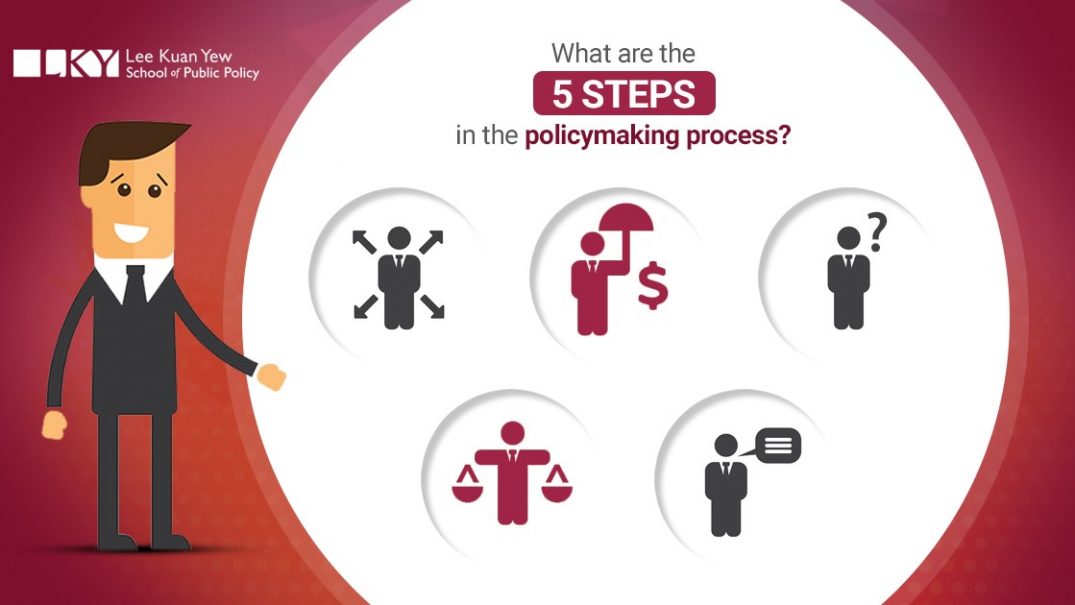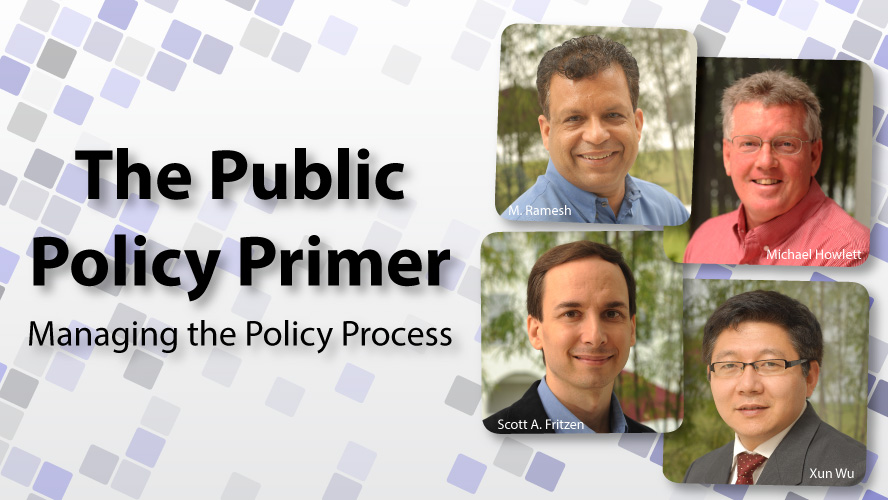
Policymaking is complex, because problems are complex and the solutions are not as straightforward as they may seem. Poverty issues, for instance, are often accompanied by inequality and environmental problems which may in turn be rooted in financial conditions. Just recently, New York City's Mayor Bill de Blasio announced a lawsuit against fossil fuel companies including Chevron and ExxonMobil to have them pay a part of the cost associated with climate change.
The scope of many contemporary problems is often too large for individuals to address, requiring governments to resolve the issues. Certain issues can be forced into the spotlight and policy agenda through the media and other arenas of attention. Sometimes, policymaking can be triggered by external events which disrupt policies and plans in unexpected ways. The role of the government is to provide a cohesive and stable framework in the face of grave uncertainties.
Policymaking functions

Fully revised for a second edition, The Public Policy Primer, Managing the Policy Process provides a map of making and implementing policies. Written for students of public policy and policy practitioners, the book outlines key parts of the process: Agenda-setting; Policy formulation; Decision-making; Implementation; and Evaluation.
- Agenda-setting. The agenda-setting stage involves understanding how perceived problems become policy problems that governments commit to addressing. Extensive discussion within governments and in society are vital for ensuring that only vital issues are taken up for consideration by policymakers. Public managers have a critical role as 'gatekeepers' to verify and substantiate any claims for attention among policymakers and the public.
- Policy formulation. Policy formulation involves developing alternative courses of government activity to address problems that are either on or expected to be a part of the policy agenda.
- Decision-making. At this stage, key decision makers in the executive and legislative branches of the government consider different options and make a final call on the course of action to be followed.
- Implementation. The implementation of adopted policies cannot be taken for granted, however, despite best of intentions. To ensure that policies are implemented as intended, policymakers need to establish appropriate institutions and processes. Specifically, they need to establish appropriate incentives and accountability mechanisms for the implementing officials.
- Evaluation. Finally, policymakers need to ascertain how effective new policy has been in achieving its stated objectives. The primary purpose of the exercise should be not to declare success or failure but to learn from it.
The role of policy actors
Besides illustrating processes with tangible examples of how countries manage the policy process, the book explains the roles of key actors in it.
- Government actors. Making and implementing policies is ultimately the responsibility of government officials. As such, their preferences and activities have the greatest impact on the substance and direction of a policy.
- Societal actors. As civil society members, this group covers advocacy groups, activists and voters. Advocacy groups using the courts to overturn Trump Administration's ban on travellers and refugees from 7 predominantly Muslim countries is an example of the role of societal actors.
- International actors. International organizations, both governmental and non-governmental, and their societal partners play an increasingly large role in the policy process. The World Health Organization, World Bank and Oxfam are examples of international actors in contemporary policy processes.
The existence of complex social, economic and environmental problems require policy actors to develop a firm and strategic approach to problem solving. There is a need for policy actors to have a sound knowledge base, strong analytics skills and resources, and deft managerial skills to avoid being overwhelmed by the problematic conditions they seek to improve.
Expect more policy-making advice in the book

In The Public Policy Primer, Managing the Policy Process, 2nd Edition, the authors (Xun Wu, M. Ramesh, Michael Howlett and Scott A. Fritzen) provide an introduction to the key policy functions, the challenges they entail, and how the challenges may be addressed by policy actors.
Written from a comparative perspective, the authors include examples from a diverse range of countries at different stages of development, highlighting key principles and practices through which policy actors can effectively manage their policy processes and outcomes.
To learn more about the book, please visit here.